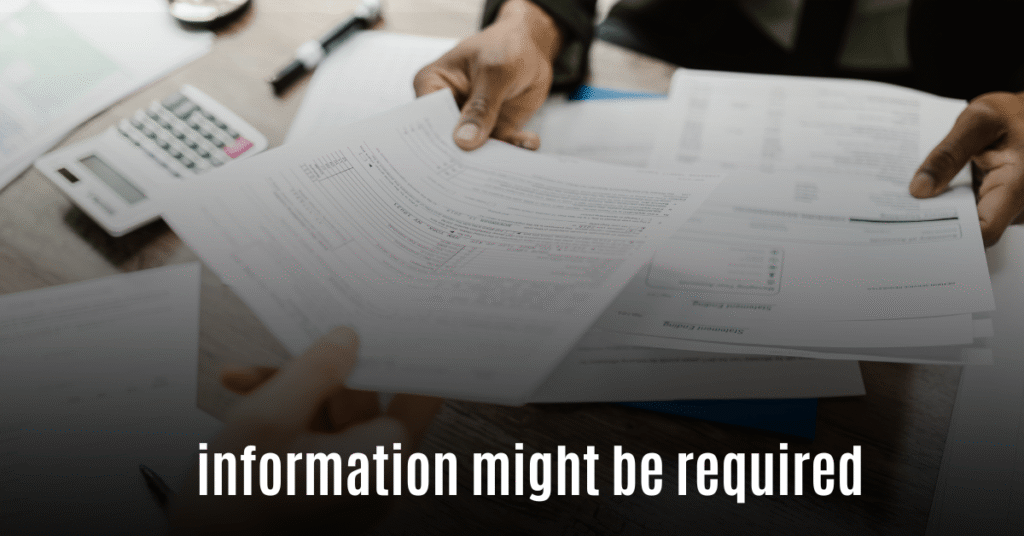So, you’ve closed on your new home, celebrated the exciting milestone, and started settling into your dream house. But suddenly, you receive a call or email from your mortgage company asking for more information. This can catch you off guard and create some confusion. Don’t worry – it’s not uncommon for mortgage lenders to ask for additional documentation or clarification after the closing process. In this article, we’ll explore why mortgage companies may request further information, the types of documentation they might need, and how to effectively navigate this situation.
Why do mortgage companies ask for more information after closing?
First and foremost, it’s essential to understand that mortgage companies have a responsibility to ensure the accuracy of the loan file and compliance with lending regulations. Asking for additional information is a regular part of their due diligence process to mitigate any potential risks associated with the loan.
1. Verification Purposes:
One common reason mortgage lenders request more information is to verify the details provided during the application process. They may need to double-check your income, employment status, assets, or other financial information to confirm its accuracy. This verification process helps protect both the lender and the borrower from any fraudulent activities.
2. Loan Sale Or Securitization:
Many mortgage companies sell loans to other financial institutions or investment firms shortly after closing. These buyers often have specific requirements or guidelines that the original lender must adhere to. In some cases, the new buyer may request additional documentation to meet their criteria before finalizing the loan sale or securitization process.
3. Compliance With Regulatory Changes:
The mortgage industry is highly regulated, and lending guidelines can change over time. If there have been any recent updates or new regulations, the lender may need to collect additional information to ensure compliance. This is particularly common for loans that involve government-backed programs like FHA, VA, or USDA, as these programs often have specific requirements.
What kind of additional information might be required?
Now that you understand why mortgage companies ask for more information, let’s explore the types of documentation they may request:

| Documentation Type | Purpose |
|---|---|
| Pay stubs or employment verification | To validate income and employment status |
| Bank statements | To verify assets or check for large deposits |
| Tax returns | To confirm self-employment income or ensure consistency with reported earnings |
| Proof of homeowner’s insurance | To protect the lender’s collateral |
| Gift letter, if applicable | To document gift funds used for down payment or closing costs |
Please keep in mind that this is not an exhaustive list, and the specific documentation requested may vary depending on your unique situation and the lender’s requirements.
How to effectively navigate the situation
Receiving a request for additional information from your mortgage company can be a bit overwhelming, but here are some steps you can take to handle it smoothly:
- Stay calm and don’t panic: Keep in mind that the request for more information doesn’t necessarily mean there’s an issue with your loan.
- Contact your loan officer or lender: Reach out to your loan officer or the designated point of contact at the mortgage company to understand the reason behind the request and what specific documents they need.
- Please provide the requested information promptly: Once you have a clear understanding of what’s needed, gather the requested documentation and submit it to the lender as soon as possible. This will help expedite the process and prevent any delays in the overall timeline.
- Please keep copies of all submitted documents: It’s essential to make copies of all the documents you provide and keep them for your records. This way, you have a paper trail if any questions or issues arise later on.
- Ask for clarification if needed: If you are unsure about any part of the request or need clarification on the documentation, don’t hesitate to ask for additional guidance. Your loan officer is there to help you navigate the process.
Remember, the mortgage company’s intention is not to create unnecessary hurdles but to ensure compliance and protect the interests of all parties involved. By cooperating and promptly providing the requested information, you can help facilitate a smoother resolution and maintain a positive relationship with your lender.
Frequently Asked Questions For Mortgage Company Asking For More Information After Closing: What You Need To Know
How Long Does The Mortgage Company Have To Ask For More Information After Closing?
After closing, the mortgage company typically has a limited time frame to request additional information if needed. This duration may vary, but is often within 30 days.
What Kind Of Information Might The Mortgage Company Need After Closing?
The mortgage company may require additional information after closing, such as proof of insurance, updated financial documents, or documentation regarding unforeseen changes in your employment.
Why Is The Mortgage Company Asking For More Information After Closing?
The mortgage company may request more information after closing to ensure compliance with lending regulations, verify the accuracy of provided documentation, or assess any potential risks associated with the loan.
Could The Mortgage Company Reject My Loan After Closing If I Don’t Provide The Requested Information?
In some cases, failure to provide the additional information requested by the mortgage company after closing could potentially lead to a loan rejection. It is vital to fulfill any information requirements to avoid complications promptly.
Conclusion
While it may feel frustrating to receive a request for more information from your mortgage company after closing, it is a regular part of the lending process. Mortgage lenders have certain obligations to fulfill, and asking for additional documentation is their way of ensuring compliance and protecting against potential risks. By understanding why these requests occur, what kind of documentation may be required, and how to handle the situation effectively, you can navigate through this process with ease and peace of mind.
Ismail Hossain is the founder of Law Advised. He is an Divorce, Separation, marriage lawyer. Follow him.





Leave a Reply